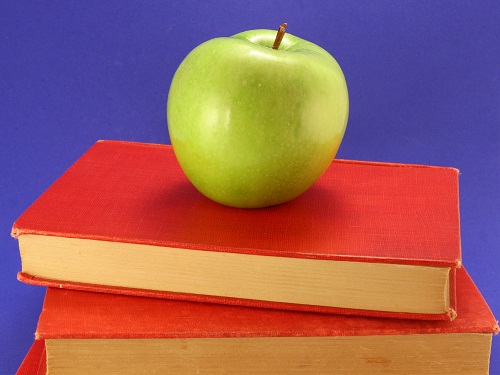Thank you for joining the Partners in Health and Wholeness Book Club. You can officially sign-up here. Through it, we hope to engage people of faith in discussions over why our health matters. Our current choice of reading is “Animal, Vegetable, Miracle: A Year of Food Life” by Barbara Kingsolver. We are posting updates through the PHW Facebook page, but our PHW blog page has the discussion posts in full with responses from staff. Just look for the apple on top of the book picture among the blog post pictures and you will find past Book Club entries.
I hope that for you, Thanksgiving is a time to share in the delight of a meal with friends and family. This week is an appropriate time to read a chapter about the joy and thrill of cooking. Cooking is becoming a lost art in our world, due in large part to what Barbara Kingsolver refers to the “religion of time-saving.” In this chapter, she challenges us to consider what we loose when we save time. “Every minute I save will get used on something else…on the other hand, attending to the task in front of me — even a quotidian chore — might make it into part of a good day, rather than just a rock in the road to someplace else.”
Convenience foods often seem like the answer — or at least a temporary solution — to the hectic nature of our lives. The demands of holding down a job, taking care of a home and family, all on a budget, can be overwhelming. But there is a real danger in letting corporations do all our cooking and advertising make all of our nutritional decisions. The cost is huge: obesity and chronic disease are major problems in this country. And cooking at home, rather than going out to restaurants, costs pennies on the dollar. Cooking is one way to guard what we allow into our bodies and what stays out. Cooking is one way to hold on to culture, health, family traditions, and creativity. Kingsolver addresses the tension and the historical developments that have lead us to a culture that now runs on “empty calories.” It is dangerous thinking for us to equate cooking with something that intellectual, professional people are better than. Instead, cooking can be a creative opportunity, a protest of the food system, a stand for the health of our families and communities. Cooking does not have to always be ornate and complicated, like some of our Thanksgiving meals may be. Cooking can be simple and even convenient — like crock pot soups that can simmer unattended all day while families are at work and school. She leaves labor-intensive meals for weekends and always doubles them to eat later in the week. One important piece of advice: She always plans her meals ahead.
Cooking in the Kingsolver house is also a social event. I love the poetry of this excerpt:
“Households that have lost the soul of cooking from their routines may not know what they’re missing: the song of a stir-fry sizzle, the small talk of clinking measuring spoons, the yeasty scent of rising dough, the painting of flavors onto a pizza before it slides into the oven. The choreography of many people working in one kitchen is, by itself, a certain definition of family, after people have made their separate ways home to be together.”
This Thanksgiving Day, may we revisit, even for one meal, the beauty, art, and sacrament of cooking. May we find time with family, friends, and neighbors to enjoy not just a meal, but the process of the meal — the preparation, conversation, and even the cleanup, knowing that we hold values much higher than the “religion of time-saving.”
1) Do you know how to cook? Who taught you, and who can you pass these traditions on to? If not, what first step can you take in learning?
2) Have you experienced God in the process of preparing and sharing a meal? Reflect on it. What made it so meaningful? Is this something you can incorporate on a daily basis? I pray you have a holy moment such as this today.
– Shannon Axtell Martin, PHW Regional Consultant
Partners in Health and Wholeness is an initiative of the North Carolina Council of Churches. PHW aims to connect health as a faith issue. Please visit our website to sign your personal pledge to be healthier, and to find out about grant opportunities for places of worship in NC.

